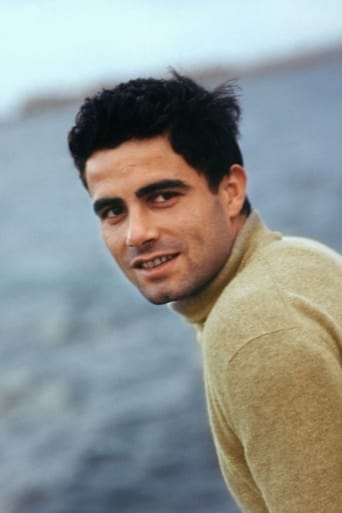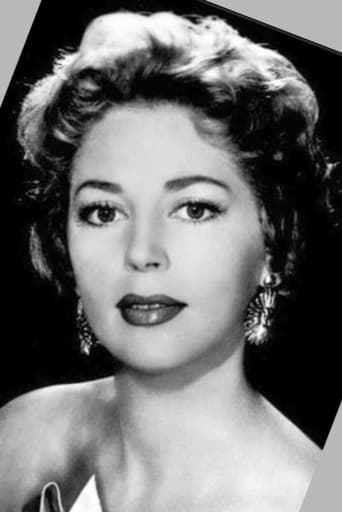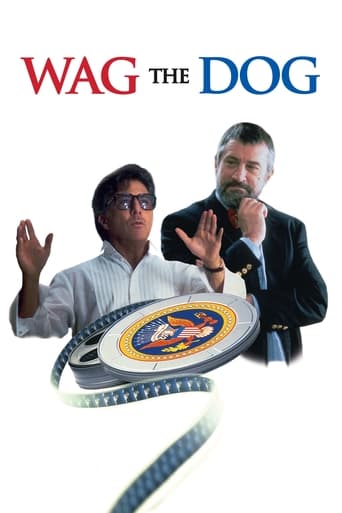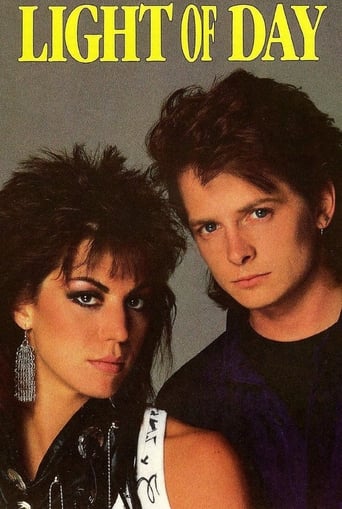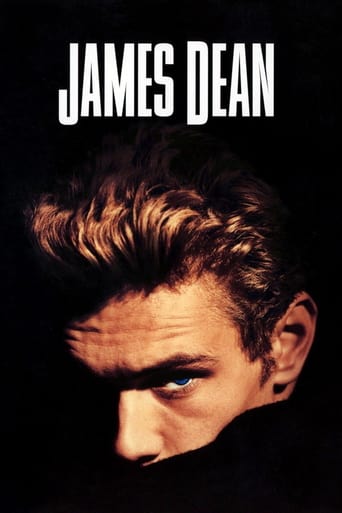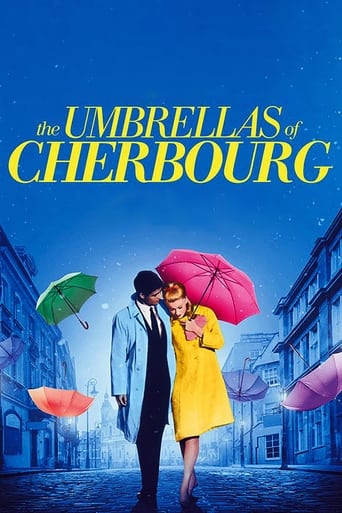
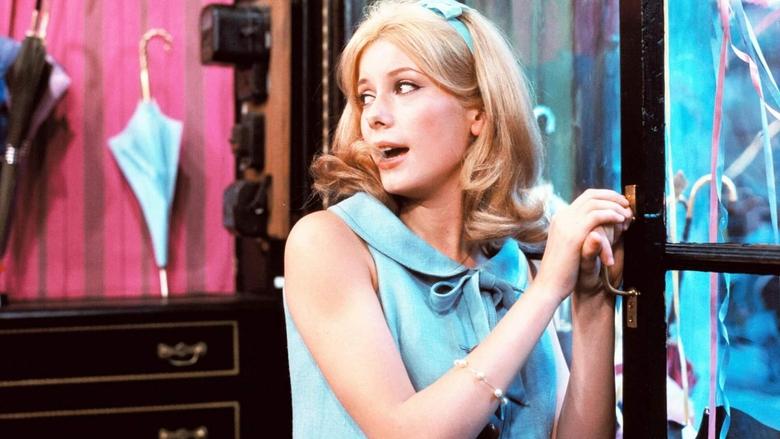
The Umbrellas of Cherbourg (1964)
This simple romantic tragedy begins in 1957. Guy Foucher, a 20-year-old French auto mechanic, has fallen in love with 17-year-old Geneviève Emery, an employee in her widowed mother's chic but financially embattled umbrella shop. On the evening before Guy is to leave for a two-year tour of combat in Algeria, he and Geneviève make love. She becomes pregnant and must choose between waiting for Guy's return or accepting an offer of marriage from a wealthy diamond merchant.
Watch Trailer
Cast
Similar titles
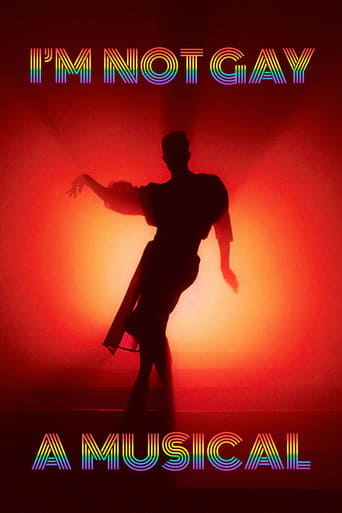
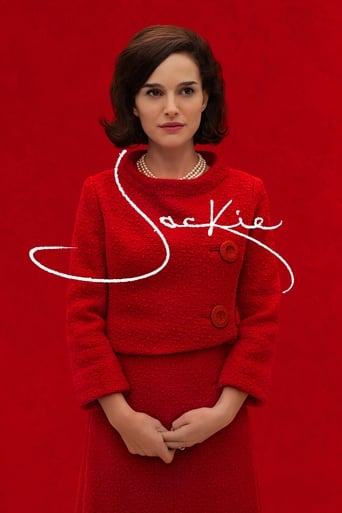
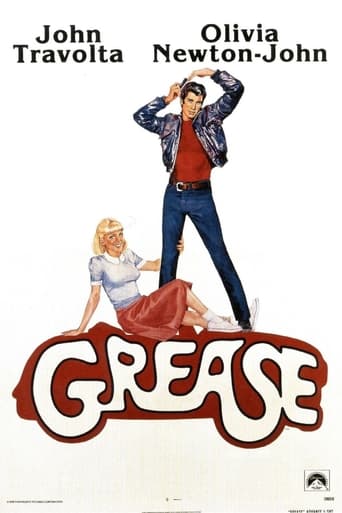
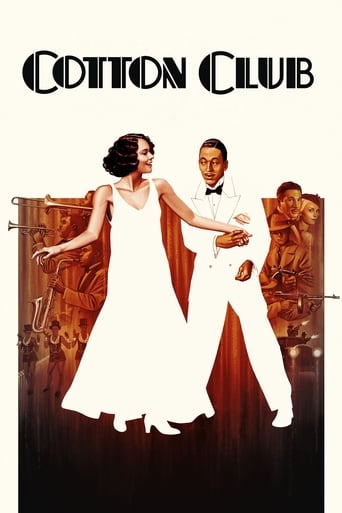
Reviews
Thanks for the memories!
Good movie, but best of all time? Hardly . . .
Excellent adaptation.
Great movie! If you want to be entertained and have a few good laughs, see this movie. The music is also very good,
Jacques Demy's "The Umbrellas of Cherbourg", Golden Palm winner of 1964, is a deliberately simple and straight-forward story sublimated by the music, I guess that's a way to put it simply.Still, I was never in a rush to watch this film, forgive my bias but the premise of one hour and half of all-singing made me expect some syrupy nothing-specialness à la "New Wave" sauce that I couldn't take seriously. I thought I would endure the film more than experience it. And to be fair, it's hard to get used to the all singing 'gimmick' (for lack of a better word) at first and the opening make you wonder if it's not unconsciously intended as a sort of spoof but the film finds a way to set its tone, making the singing a sort of natural background, allowing you to focus more on the story.First, there are the first notes of Michel Legrand's penetrative score (the "I Will Wait For You" theme) that started to resonate during the opening credits. I knew I heard that tune before and then it hit me, "Jurassic Bark", poor Seymour waiting for Fry... "I Will Wait For You", one of the saddest melodies ever, that was meant to be used for the saddest TV moment ever. Now, knowing that it came from Michel Legrand and that it would be the defining theme of the film made me realize that in terms of emotions, "The Umbrellas of Cherbourg" 'meant business', and within the right context and served by the right lyrics, the score reached unsuspected levels of poignancy.Secondly, when the film starts in a jazzy upbeat mood, there's an exchange between Guy, the mechanic played by Nino Castelnuovo and his friend about their plans for Friday night. The friend says he doesn't like operas, all the singing gets on his nerves, he prefers movies. What can you say after that? Such a line so early in the film can't be innocent, this is Jacques Demy's anticipating the natural resistance of some viewers, toward what can be perceived as a gimmick. Demy basically tells us that even movies can work like operas and that maybe this film can help us to consider singing as a language as adequate to film-making as facial expressions in a silent movie.In fact, it's not exactly singing buy lip-syncing with other professional singer's voices (which is a wise choice because I can't imagine these melodies with amateur singers) but progressively, the musicality becomes such a natural aspect of the movie that any line said without any melodic intonation surprisingly rings false. The music becomes part of the background, and in total osmosis with the art-direction, the costumes, the photography. If you pay attention to the way some women's dresses always fit the patterns or colors behind, you're tempted to interpret that as a foreshadowing of their chameleonic nature, their superhuman capability to adapt to any situation or predicament in their lives.The visual delights also lay on the depiction of Cherbourg which, depending on the season, the weather or the general mood, can be either cheerful or depressing. One day, the two lovers dance a mambo behind the red walls of a nightclub, it's red, passionate, lively, and the day after, they're in a depressing and neutrally grey train station saying goodbye to each other. Even a cute and cozy little umbrella shop can become a cold and depressing washing-machines' stores. The film is as competent in conveying emotions through visual than musical delights, but the raw core is still the romance between Guy and Geneviève played by a beautiful and young Catherine Deneuve, without it, this would have been one of these 'all flash and no substance' film. (Spoilers in Next Paragraph)The story isn't a revolution, two young enamored people make plans for the future then comes the call of duty, they have one last night together, promise to wait for each other ignoring that the "harm is done" already and then there's the absence, the separation, and throughout her pregnancy, Geneviève is courted by a providential rich man named Roland Cassard (Marc Michel) which she finally marries, so her baby can have a father. When he's back, Guy is wounded physically before being hurt emotionally, he sinks in bitterness and alcohol before being rescued by his friend Madeleine, they marry and have a child. Finally, a few years after, the former lovers meet in an Esso station and the film concludes with the right notes of realism, foreshadowed by Genevieve's mother (Anne Vernon) who said that times fix everything and only in movies, people die from love. If I wasn't so emotionally overwhelmed by that ending and how daring it was to contradict the then-romantic tropes, I would have kept thinking of a certain movie that almost won Best Picture last year. I just wish I saw Demy's "Umbrellas" before Damien Chazelle's "La La Land". Now I know where he got the inspiration, it's all to his credit to revive the magic of this classic for a contemporary tale, but now I see the ending less as a masterstroke of originality than a well made homage to Jacques Demy. The last time I had a similar regret is when I discovered Fellini after Kusturica's "Undeground", another Golden Palm winner.So, what I loved about "The Umbrellas of Cherboug" is how misleading it actually is, these jazzy musical interludes, the playful way characters recite their lines by singing, you wouldn't believe this film would be so dark and so realistically bold, dealing with pregnancy, financial problems, not much war traumas than the disillusion of homecoming soldiers and of course, broken hearts. It's like a strawberry-flavor candy with a lemon bittersweet taste in the end. The film is well-made, well-edited, and well-written. Of course, the singing can get on people's heads but hey, the film is one hour and twenty something minutes long, it's not too much patience demanding.And the final minutes will reward your patience anyway, listening to it, I know why Michel's name is Legrand.
Demy challenged himself in a simple way here; portray an ordinary life of hindrance and difficulty as we might know it, so a melodramatic plot about a love affair that is quashed by distance, and layer this through the desire to flow to a further distance than just hurt; release.So he makes opera, the plot is fully sang, colors are fierce and bright in celebration of a life that we would like to be in this other way, more musical than it is and yet this desirous life breaks down on the way. None of this interest me overmuch, that is to say as artifice. But it achieves an airy feel; French is such an airy language, full of vowels, unlike the marching sounds from the other side of the Rhein. It grants the cinematic breath free passage.Oh there are melodramatic obstructions the characters face, obstacles in the path of love - the girl's beau has to spend two years in Algeria in the army, there's a lot of dismay over absence, his at first, hers when he gets back. But even more important is the evocative finale where they meet again after years one night, these last two minutes are everything; there could be friction, recrimination, ego and drama, but the film lets go, grants free passage.Indeed if you decide to track this it shouldn't be just for mellifluous song and bright colors, mere aesthetics; it should be also to contemplate release in the last gesture. Demy does it as best he can without a transcendent tradition to work from, which the French don't have.But something lingered in mind after watching. How much release is there, or how much drama that goes unspoken and is carried after they part? No clear answer other than what you embody of course.But see now. The film is an extension of a previous one by Demy, Lola. The protagonist there returns as a character here, there are other parallels. Previous knowledge isn't required of course. But the choice, to deliberately echo things we may have known from a previous life (if only we have lived through that previous life), factors in what we're saying, about drama - internal narrative - that continues to echo.And more tantalizing is to note how a third film, Le Bonheur, annotates this one and the last scene, made by the wife of Demy, Agnes Varda, obviously inspired by the work of her husband and released a year later. It's not a scholarly connection I'm after; here we have work by soulmates for whom love and romance were things they shared in life, not tropes. In Bonheur we see a husband and wife who could be the boy and girl of this one had everything worked out, whose married life is as blissful as the romance here hoped to materialize. Both films are about happiness and betrayal. Even more pertinently; both are about distance, empty space, in which internal narrative begins to form.Here every emotion is externalized in earnest, the distance is explicit; he goes away to Algeria, she to Paris. There, every emotion is externalized too - by the man - and yet the distance is implicit, masterfully so, in the women keeping silent. Varda creates empty space in which we pour our internal narrative of betrayal and come to disbelieve our senses; hauntingly rendered as an ambiguous scene of death that viewers anxious for certainty interpret unambiguously.Varda goes beyond but in my eyes the inspiration is founded on Demy's marvelous last scene where everything - we presume - is let go of; except all that lingers and you carry in life only you'll know. For a few nights of marvelous introspection you will see this together with Lola and Le Bonheur.
when I was in high school, taking french, the teacher would occasionally push a tape into a slot and show a "movie." the idea was for us kids to hear the language. well, this was one of the movies. at the time, my feelings concerning "umbrellas" were... truthfully, I didn't know what to think. as a seventeen year old I don't think I would have recommended it. channel surfing last night I came across it again on TCM. what a difference 9000 days makes. this is a very unique film. it's not a musical, even with the sung dialog, jazzy score and saturated colors. it's stylish camera work/art direction doesn't contradict the neorealism aspect either. It enhances it.even with the "star crossed lovers" aspect, the film isn't sentimental or corny. and the socio-economic angle is also treated tastefully.This is an ART film in the true sense of the term. and Anne Vernon. Je t'aime.
I have always associated my favorite musicals with Broadway, apart from this one, which is up there with my top three favorites. Filed as a love story, it also makes my top three. And Catherine Deneuve? She's definitely in my top three most beautiful actresses of all time. Then there's Michel Legrand, my second favorite composer (after Chopin, and if you must know, the third ones would be the Lennon/McCartney collaboration). How does one get so willingly hooked to a movie? Just sample the first five minutes of it, you don't even wait for the first lines of song to realize you're in for a gem of a film. Before you hear any of it, the sets are bound to get you. For the colors, those vibrant, palpable colors are a veritable visual feast. And have I mentioned the divine Catherine Deneuve? If there's anything most likely to distract your attention from the sets, it would be her presence. And last, but not least, for long after you may have forgotten the plot, you will never forget this: that melodious, hummable music, a song most of us associate with having heard from childhood, that beautifully threads the scenes of the story together--and you have the perfect musical. The most poignant love story (reminiscent of Splendor in the Grass, another coming-of-age film with a most genetically- blessed lead actors), with an ending that breaks the heart, but one which I completely approve of!

